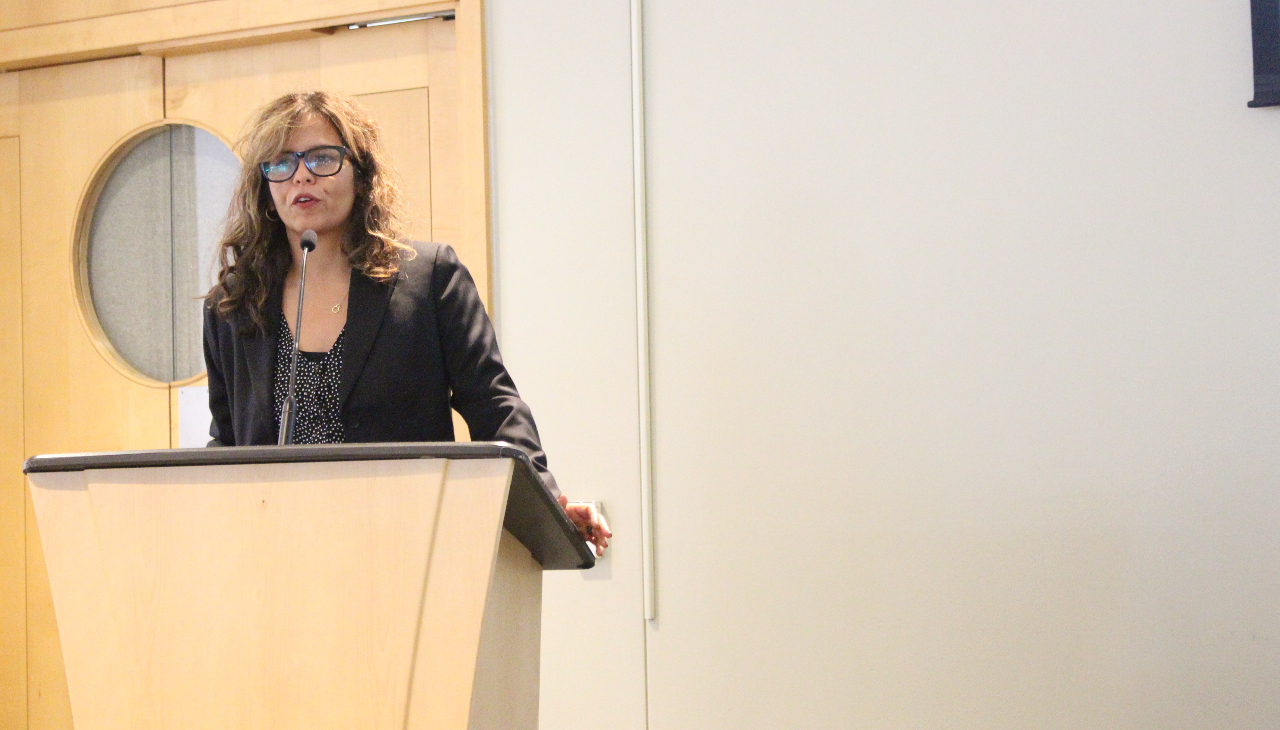
The Technology Gap, and the importance of tech in today’s business world
The GPHCC hosted its annual State of Hispanic Business event on Oct. 19, highlighting the technology gap for Hispanic business owners.
There are many barriers that serve as factors that play into the challenges that Black and Latino entrepreneurs, one of the most prevalent is the technology gap.
According to McKinsey, about 93% of Latino-owned employer businesses have no e-commerce sales. This is in comparison to 89% for white-owned employer businesses,
With the increasingly digital world we live in, this 4% gap is likely to place Latino-owned businesses at a disadvantage when it comes to success.
On Wednesday, October 12, the Greater Philadelphia Hispanic Chamber of Commerce (GPHCC), held its annual State of Hispanic Business event.
This year’s edition focused specifically on the Technology Gap.
Joel Barnett, senior vice president of commercial affinity for Fulton Bank, stressed that “minority businesses are the fastest-growing businesses in the U.S.”
However, while the objectives are uniform across the board — grow, create jobs, benefit communities — there are disparities.
In his role, Barnett helps lead efforts to create unique solutions to response to those disparities and challenges.
“For instance, we want to create greater access to capital, we’re looking at our credit policy, and we're looking at… where we can make more loans, more good loans, and help communities to grow, thrive and create jobs,” said Barnett.
During the event, GPHCC President & CEO Jennifer Rodríguez, presented the 2022-2023 Latino Small Business Agenda.
Rodríguez highlighted that Latinos are the most entrepreneurial demographic in the country, starting businesses at three times the national average.
“Those businesses, however, tend to start smaller and stay smaller even as they mature,” said Rodríguez, expressing that if there were parity with non Latino-owned businesses there would be another $3 trillion in revenue generated in the economy.
“So really, the potential of Latinos in the economy is significant and Pennsylvania is one of those states in which the growth of the Latino population has exploded, yet our influence and power are not well understood and we have not necessarily really garnered it to the extent of our potential,” Rodríguez added.
To help address this reality, she reiterated the Hispanic Chamber’s three main priorities: lowering the cost of doing business, preventing crime & improving safety, and post-pandemic business support.
Among the biggest challenges for Latino and diverse entrepreneurs is access to capital.
To that end, Rodríguez noted the dual importance of social capital because knowing the right people can lead to more access to resources, which can lead to capital.
Another big challenge is the technology gap, which was the main theme of this year’s State of Hispanic Business event.
RELATED CONTENT
To highlight its value, WHYY host and anchor Cherri Gregg, moderated a panel discussion that included Louis Parisi, director of marketing at Comcast Business; Nicole Marquis, CEO of Hip City Veg; and James Johnson-Piett, principal & CEO at Urbane.
To different degrees, each of them have seen the significance that technology has in their respective businesses and careers. If technology wasn’t a key component of the business, the pandemic made sure it became one.
Marquis shared that just a couple months prior to the pandemic, she had just opened three restaurants and was poised for rapid growth.
They had even built the infrastructure in their corporate office to support that growth, “and then it came to a screeching halt,” she said.
Marquis credits the fact that her company had already invested in technology and digital platforms as a major reason why they were able to adapt despite the still pressing challenges.
Comcast Business has long worked with the business community, and when the pandemic first occurred, it was found that diverse businesses and women-owned businesses were the hardest-hit.
From this came the launch of the Comcast RISE, a multi-faceted initiative that offers and provides grants, marketing services, and technology upgrades with the goal of strengthening and empowering small businesses hardest-hit by the pandemic.
“We focus not only on initiatives like RISE… but we put security at the forefront because we saw as an internet provider, there were going to be more challenges ahead and there still are,” said Parisi.
Whether it’s remote work, digital sales, or transferring traditionally in-person interactions to tech-based platforms, the ability to adapt is key to business success in this day and age.
“Everyone has to become a technology company now, so what does that mean for you?” said Johnson-Piett. “Breaking that down and figuring out how I can provide the demands of what my customers are asking for [is key].”
The use of technology will only continue to grow in the future, therefore, the need to close that technology gap becomes of an even greater importance.











LEAVE A COMMENT: